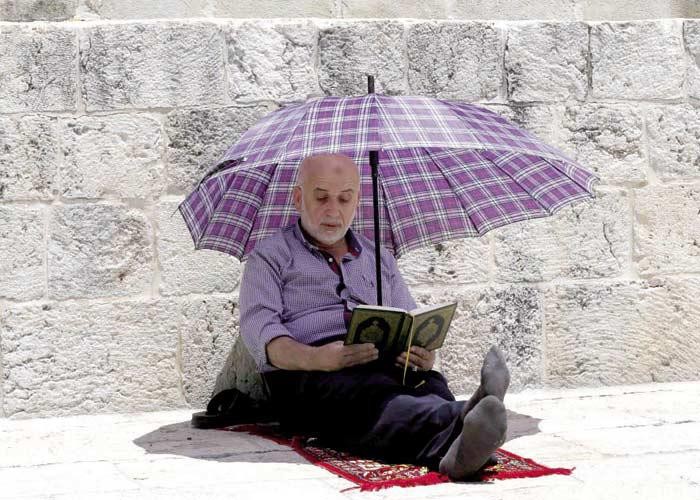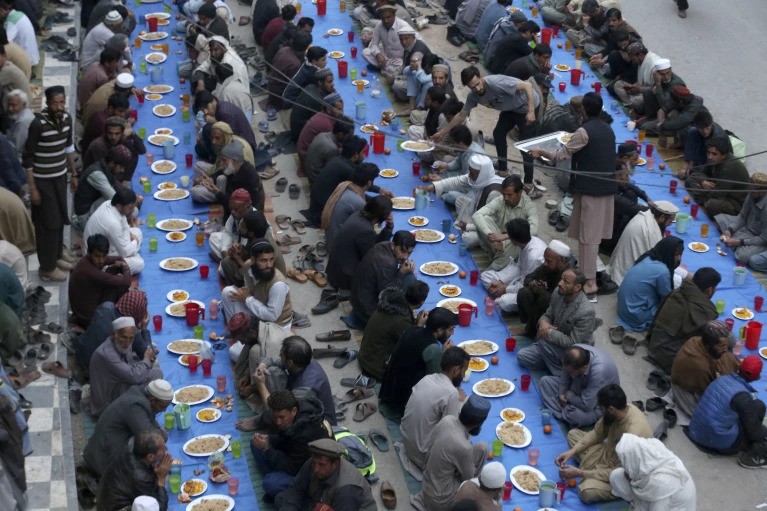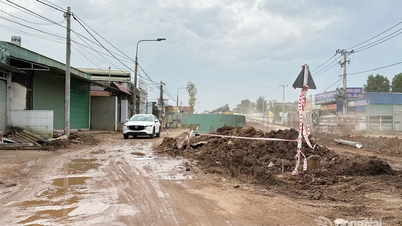Unlike some other calendars, the Islamic calendar does not have leap months, meaning that the holy month of Ramadan in 2024 officially begins in winter.
On March 11th, astronomical agencies in many Arab countries announced the official start of Ramadan. In some countries, a thin, razor-sharp crescent moon could be seen in the night sky. This is one of the easily recognizable signs to identify the beginning of Ramadan.
 |
| The crescent moon observed from Saudi Arabia marks the beginning of Ramadan in 2024. (Source: Internet) |
Thus, after many years of taking place in the summer, in 2024 Ramadan officially falls in the winter, and will only return to summer after… 27 years. Why is this happening?
Step back in time
Unlike the lunar calendars of East Asian countries such as Vietnam and China, the traditional Islamic calendar, the most common tool for determining the timing of Ramadan, does not specify leap months.
In the Islamic calendar, a year always has a fixed number of days, approximately 354. Because it is not equivalent to the Catholic calendar (also known as the solar calendar), Islamic months are often shifted back 10 days compared to the month of the previous year.
Ramadan, the ninth month in the Islamic calendar, is therefore not fixed and can occur at any time of the year.
According to the calendar cycle, Ramadan began during a period of intense heat, starting around 2006-2007. This factor, combined with the effects of climate change, has made Ramadan in recent years a real challenge for people in many Arab countries, especially in those with little vegetation and much desert land.
 |
| Praying during Ramadan in the summer requires considerable effort from Muslim believers. (Source: Arab Weekly) |
As Ramadan begins in 2024, temperatures in many countries in the region will still be low, and the transition between seasons hasn't truly occurred. This is considered the first holy month to take place in cool weather, and the phenomenon of Ramadan falling in winter will continue until… 2051, that is, 27 years from now, according to an Arab website.
The mild climate is ideal for diwaniya gatherings.
The fact that Ramadan no longer falls in summer brings many benefits and joys to people in Arab countries. As an important holy month requiring commitment from Muslims to religious laws related to fasting, this year's Ramadan falling in winter reduces the number of fasting hours per day, thereby creating conditions for people to more strictly observe the religious laws of Islam.
These days, the weather in many Arab countries remains cool; this is also a favorable factor for organizing many gatherings after iftar, the meal that breaks the fast at sunset. Diwaniya, gatherings mainly held in Gulf countries, are being held more frequently this Ramadan.
 |
| An iftar meal in Pakistan during Ramadan in 2024. (Source: AP) |
Previously, when Ramadan fell in the summer, recreational activities and fairs were less likely to be held. However, this year, venues such as parks and shopping malls are extending their operating hours beyond usual. Desert camping in some countries has also been extended until the end of Ramadan.
The favorable climate will become even more apparent when, starting in 2028, Ramadan officially enters winter. At that time, daily life in Arab countries will undoubtedly shift to a new rhythm.
Source






![[Image] Close-up of the newly discovered "sacred road" at My Son Sanctuary](/_next/image?url=https%3A%2F%2Fvphoto.vietnam.vn%2Fthumb%2F1200x675%2Fvietnam%2Fresource%2FIMAGE%2F2025%2F12%2F13%2F1765587881240_ndo_br_ms5-jpg.webp&w=3840&q=75)










































































































Comment (0)